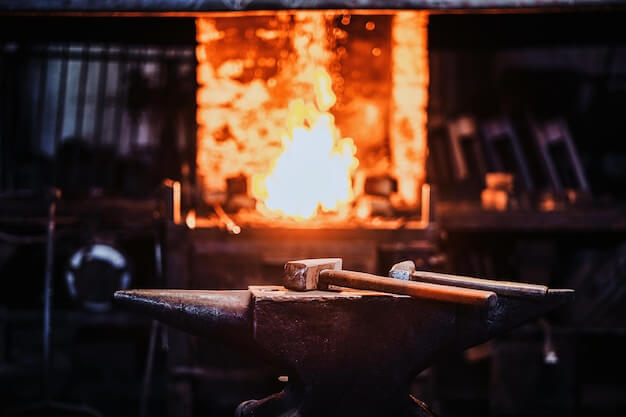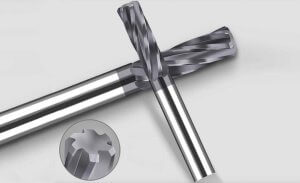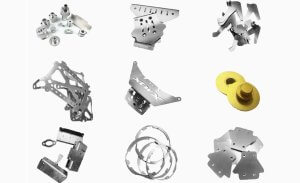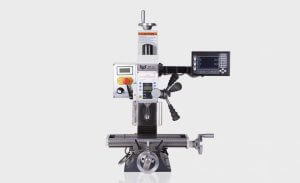Introduction to CNC Machining and the Importance of Choosing the Right Aluminum Grade
CNC machining is a vital manufacturing process that uses pre-programmed computer software to dictate the movement of factory machinery and tools. This technology significantly streamlines various aspects of production, such as cutting, drilling, and shaping different materials with high precision and accuracy. Out of all the available raw materials, aluminum ranks highly due to its lightness, strength, durability, corrosion resistance, and thermal conductivity. Notably, choosing the right aluminum grade is crucial in CNC machining since each grade possesses unique mechanical properties adapted for specific tasks. For instance, 6061 aluminum alloys perform excellently in structural applications due to their weldability and good mechanical properties, while 7075 grade excels in aircraft parts due to its strong fatigue strength.
Unarguably, these nuances can greatly impact product quality, cost efficiency, and overall manufacturing success, underlining why careful selection of the suitable aluminum grade is necessary.
Understanding Aluminum Grades: 6061 vs. 7075
Aluminum grades signify the unique combination of properties and characteristics possessed by different types of aluminum. These characteristics differentiate one type of aluminum from another, providing a ‘grade’ which demonstrates its specific uses in various industries, ranging from construction to transportation to electronics. Essentially, it constitutes a language for professionals working with the metal, enabling them to select the most suitable grade depending on their project’s needs.
The two featured grades discussed in this article are the 6061 and 7075 aluminum alloys. The 6061 aluminum is known for its superior corrosion resistance, excellent weldability, remarkable formability, and good strength-to-weight ratio, making it an ideal choice for boat fittings or structural applications. On the other hand, the 7075 aluminum alloy, blessed with high tensile strength and toughness but slightly lower corrosion resistance, finds considerable use in aircraft structures and competitive sports equipment where strength and lightness are paramount.
Insight into the Characteristics and Applications of 6061 Grade Aluminum
6061 grade aluminum is a versatile alloy known for its high strength, good corrosion resistance, and excellent machinability. It is composed of 97.9% aluminum, 0.6% silicon, 1.0% magnesium, 0.2% chromium, and 0.28% copper. This composition gives it the necessary properties for various CNC machining applications. The alloy is commonly used in general manufacturing, aerospace, consumer goods, and architecture industries, making it a popular choice for structural parts, truck bodies, aircraft components, and electronics. When considering CNC machining projects, the characteristics of 6061 grade aluminum make it a favorable material due to its machinability and suitability for a wide range of applications.
Insight into 7075 Grade Aluminum
The 7075 grade aluminum is distinctly known for its high-strength capacity, making it an excellent choice for heavy-duty applications. This grade notably possesses a great strength-to-weight ratio, zinc as its largest alloying element and highly respectable resistance to corrosion. Unlike other grades, the 7075 series responds exceptionally well under CNC machining processes, symbolizing its notable versatility.
An illustrative example might be the manufacturing of aircraft structures where high-stress environments are prevalent. In such conditions, 7075 aluminum exhibits consistent performance that underscores its formidable properties. By comparison to other metals often used for the same purpose, this grade has demonstrated considerably superior results in terms of maintaining integrity against sheer force or prolonged periods of heat exposure, thanks largely to CNC machining’s influence.
In review, optimum uses of 7075-grade aluminum extend to areas needing both lightweight solutions and sustained durability. These might typically include aerospace parts, rock climbing equipment, bicycle components, and even ship fittings. This unique usability spectrum highlights how adaptable 7075 grade aluminum can be when machined correctly, handing it advantage over rival materials when applied within demanding sectors.
6061 vs. 7075: Side-by-side Aluminum Grade comparison
When choosing the best aluminum grade for CNC machining, two popular options are often considered – 6061 and 7075. Both possess unique characteristics that may make them more suitable depending on the requirements of a specific project. In our side-by-side comparison, we’ll discuss crucial parameters such as strength, machinability, and cost.
| Parameters | 6061 | 7075 |
|---|---|---|
| Strength | Moderate to high | High |
| Machinability | Easy | Average |
| Cost | Economical | Pricier |
The 6061 grade boasts moderate to high strength and easy machinability making it a versatile choice for a wide range of applications.
On the other hand, its economical cost further enhances its appeal especially for larger projects where budget considerations play a significant role. Conversely, the 7075 aluminum grade provides superior strength but comes with average machinability. Its relatively higher cost can be justified by its performance in demanding applications where high strength is paramount. Thus, while both grades have their advantages, the selection ultimately depends upon the application’s demands and constraints.
Factors to Consider When Choosing Between 6061 and 7075 Aluminum Grades
In determining the best aluminum grade for CNC machining, certain key factors need to be taken into consideration. Foremost among them is an assessment of your product’s specific requirements. The primary purpose of the end products decides which type of alloy would be more suitable. For instance, Grade 6061 is widely recognized for its excellent weldability, making it ideal for applications that require welding. If budget constraints are a concern, Grade 6061 again may be the preferable choice as it tends to be less expensive than 7075.
Durability is another significant factor in this decision-making process. If your project prioritizes strength and toughness, then Grade 7075, known for its superior hardness and high yield strength, might be the optimal selection.Listed below are some crucial points to consider:
- Analyze your product’s unique values: what does it really need?
- Weigh the importance of budget: how does cost play a role?
- Evaluate durability needs: which grade can better withstand use over time?
Expert Recommendations on Choosing Between 6061 and 7075 Aluminum Grades for CNC Machining
Industry experts generally recommend the selection of either 6061 or 7075 aluminum grades depending on specific application requirements. The main factors to consider when deciding between these two include strength, machinability, weldability, finish, cost, and application-specific needs.
- Strength: If your project requires high-strength material applications, professionals suggest opting for grade 7075 as it is significantly stronger than 6061.
- Machinability: For projects that require excellent machinability, experts advise employing 6061 due to its superior easier-to-machine properties contrasted with 7075.
- Weldability: When welding is a crucial concern, industry specialists propose using 6061 since it provides better weldability compared to 7075.
- Finish: Conversely, if a fine finish is necessary, 7075 is often recommended due to its ability to hold up well against anodizing processes used in finishing.
- Cost: Considering budget constraints, choose 6061 selected for its lower cost compared to 7075 while still delivering adequate performance across several parameters.
- Application-Specific Needs: The final decision should depend primarily on the particular project specifications. Experts recommend consulting directly with your materials supplier or a qualified engineer to focus on what will serve you best.
In conclusion, there’s no hard and fast rule about selecting the ideal aluminium grade for CNC machining- whether 6061 or 7075. Making the right choice involves optimizing various competing requirements based on expert recommendations and pertaining to strength, finish, welding needs, costs, machinability factors and specific application requirements.
Other Articles You Might Enjoy
- Material Selection for CNC Machining in the Medical Device Industry: Titanium vs. Stainless Steel
Introduction: CNC Machining in the Medical Device Industry and Importance of Material Selection The application of Computer Numerical Control (CNC) machining in the medical device industry is increasingly imperative due…
- Innovative CNC Machining for Advanced Spacecraft Components
Introduction: CNC Machining and its role in Spacecraft Components Computer Numerical Control (CNC) machining has, over the years, proven to be one of the most integral pillars within manufacturing industries.…
- Ceramic Tooling in CNC Machining: Breaking the Myths About Durability and Performance?
CNC Machining and Ceramic Tooling: Busting the Myths Computer Numerical Control (CNC) machining is an advanced method of manufacturing where pre-programmed software controls the movement of factory machinery, giving intricate…








